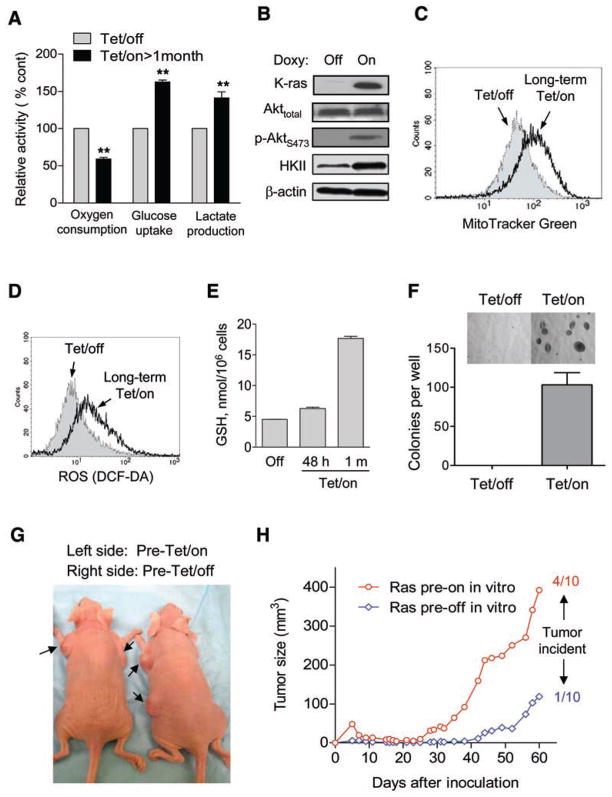Figure 5.
Effect of long-term expression of K-rasG12V on cellular metabolism and tumor formation capacity. (A) T-Rex/K-ras cells were induced to express K-RAS by continuous culture with 20 ng/ml doxycycline for over 1 month. Oxygen consumption, glucose uptake and lactate production were measured in comparison with the Tet/off control cells. (B) Western blot analysis of Akt and hexokinase II (HKII) in T-Rex/K-ras cells with or without long-term expression of K-ras. (C) Comparison of mitochondrial mass in Tet/off and long-term Tet/on cells, measured by flow cytometry analysis after staining with MitoTracker Green. (D) ROS production remained elevated after induction of K-rasG12V for over a month (long-term Tet/on). (E) Analysis of glutathione (GSH) levels in T-Rex/K-ras cells without or with K-rasG12V induction for short term (48 h) and long term (> 1 month). (F) Comparison of T-Rex/K-ras cells with or without long-term pre-induction of K-rasG12V for colony formation in soft agar. The same number of cells were seeded in soft agar suspension in a six-well plate described in Materials and Methods. After incubation for 15 days, colonies were stained with iodonitroterazolium violet and counted. Data are shown as mean ± SD from triplicate experiments. (G) Representative mice showing tumors grown from inoculated T-Rex/K-ras cells. Cells with and without long-term pre-induction of K-rasG12V expression were inoculated into the left flank and right flank of the same mice, respectively. (H) Comparison of tumor growth in mice bearing T-Rex/K-ras cells with and without long-term pre-induction of K-rasG12V expression. After cell inoculation, all mice received doxycycline during the 60-day observation period.

